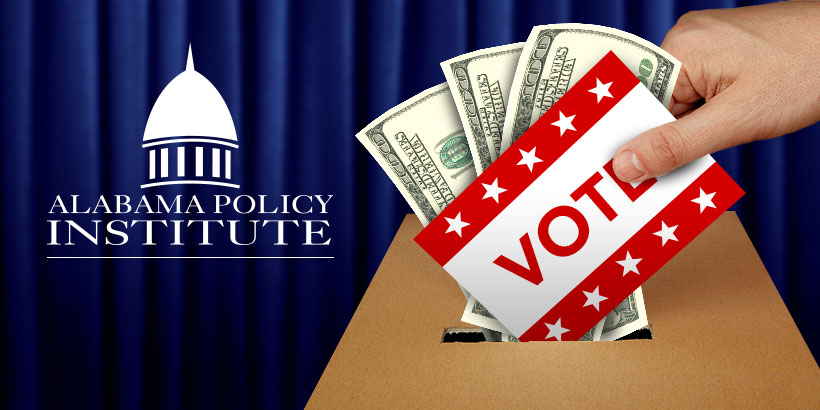
BIRMINGHAM, Ala. — The Alabama Policy Institute hosted an event Tuesday debating the merits of IRS controls over non-profits and tax-exempt groups that “benefit social welfare.”
The Internal Revenue Service announced earlier this year it is seeking to broaden a rule policing political nonprofits to include political parties and political actions committees. By changing this rule, many current 501(c)(3) groups could fall under 501(c)(4) status requiring the disclosure of their donor lists.
501(c)(3) non-profits are largely not allowed to participate in the political process—but are only allowed to provide educational, issue-based materials. and 501(c)(4)s have a little more leeway, but are still not allowed to have any contact to strategize with candidates or their committees.
Hans Von Spakovsky, a Huntsville native and researcher at the Heritage Foundation, argues that this donor disclosure of private donations constitutes a chilling effect on free speech and a violation of privacy.
Craig Holman, of the advocacy group Public Citizen, strongly disagreed. He argues that the use of undisclosed “dark” money “harms democracy” and places elections in the hands of an elite few.
Alabama has had a major part to play in the world of campaign finance post Citizen’s United. During the IRS scandal in which conservative political groups were targeted, the Wetumpka Tea Party had its 501(c)(4) nonprofit status super-reviewed by the tax agency. The landmark Supreme Court case of McCutcheon v. FEC, which declared aggregate contribution limits to campaign finance unconstitutional, came from a suit brought by Birmingham native and conservative donor Shaun McCutcheon.
Related: Alabama Tea Party group leader on Fox News: Obama lied about IRS targeting of conservatives
During much of the API debate, Holman argued that many Super-PACs that help candidates get into office have mysterious origins and voters cannot truly tell what their intentions are without donors being known. He said that “With groups like the NRA and Sierra Club, we generally know where the money is coming from. But with these other groups, voters have no idea.”
Spakovsky countered that America post-Citizen’s United, is actually more democratic and more free. He pointed out that since the 2010 election, the first cycle after the landmark court decision, the rate of incumbency has gone down at a faster rate since any time back to the 1930s.
Transparency became a major point of disagreement where both sides could not agree about the balance between it and privacy. Holman suggested a system where groups have a “political account” in which people donate to and knowingly acknowledge their disclosure. But, Spakovsky took umbrage with the point that the everyday man, or even CEO, could, without consequence, let everyone in the world know their political beliefs.
Spakovsky cited the firing of Mozilla CEO Brendan Eich after the dating site OK Cupid publicized Eich’s donation to Prop. 8, a California ballot initiative that barred same-sex marriage in the Golden State. “There are a lot of Americans that can’t afford to have their opinions known,” he added.
“Transparency is about us trying to keep an eye on what the government is doing, not about the government keeping an eye on what we’re doing,” Spakovsky said.
In the 2012 election cycle, $7.3 billion were spent on all federal elections. To put that number in perspective, $7.3 billion represents less than 5 percent of the total ad spending in all U.S. media in the same year.
You can watch the entire debate on API’s YouTube channel.
Don’t miss out! Subscribe today to have Alabama’s leading headlines delivered to your inbox.